The Dutch violinist reveals why she releases music on her own label, All Ears Records, in light of a new album featuring works by Gubaidulina, Shalygin and Vasks
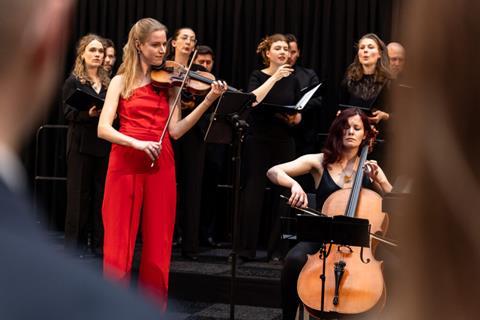
Read more Featured Stories like this in The Strad Playing Hub
Merel Vercammen is a violinist who is releasing her album, Rejoice, on Friday 17 October, along with her cellist duo partner, Maya Fridman. Flexing both her musical skills and an entrepreneurial mindset, Vercammen is releasing the album on her own label, All Ears Records, an initiative that has shaped her artistic choices and aims to give her complete control over the way her projects are recorded, presented and released.
Vercammen is a dedicated advocate for contemporary music and female composers, seen in her album programming. Rejoice is a tribute to the late composer Sofia Gubaidulina, who died earlier this year, and features the composer’s eponymous Rejoice! Sonata for violin and violoncello.
The album also features the premiere recording of Angel by Ukrainian-born composer Maxim Shalygin, as well as Plainscapes by Pēteris Vasks.
Vercammen shares with The Strad why she decided to start her own recording label, as well as some of the challenges and lessons learnt throughout the process.
Why did you start your own label, when the world already has so many?
When I decided to start my own label, it wasn’t rebellion that drove me - it was curiosity. I’ve always loved the DIY mindset: figuring things out, understanding how systems work, and shaping every detail myself. Running a label means complete freedom, not only artistically, but also in everything surrounding the music -planning, design, and how the album appears on streaming platforms.
I want each album to be a complete piece of artwork, sonically and visually. I choose the engineers, locations, designers, and oversee the aesthetic process. I deeply care about the liner notes - they should add something. Bringing all these worlds together gives me joy, and I’d recommend every musician to try it once, even if you’re signed elsewhere. It’s a powerful lesson in creative independence.
How do you balance artistic freedom and commercial strategy?
After releasing my first album on my own label All Ears Records (Sarasvati with pianist Dina Ivanova), I learnt a lot about building momentum, for instance, pre-releasing tracks as singles, to help audiences connect before the full album appears. Those insights could serve commercial aims, but for me, artistic choices always come first. The Four Seasons are amazing but can wait!
My upcoming album Rejoice grew from a clear motivation:. I wanted to give my duo with cellist Maya Fridman an album of its own to explore three particular works in depth. It’s not that my repertoire has changed since running my own label; I’ve always sought freedom. As a classical violinist, releasing The Zoo - a double album of pure improvisations - already proved how much I value that space to experiment. Rejoice simply continues that journey.
Do you have any lessons that you’ve learnt the hard way throughout the process? Tell us about the work Rejoice! by Sofia Gubaidulina.
We recorded Gubaidulina’s Rejoice! in the darkest and coldest days of January. The church had heating - but of the loud, air-blowing kind, far too noisy for a recording. We ended up with small electric heaters behind us, warming our hands between takes and laughing through the shivers. I even ran laps during breaks to keep warm. Lesson learnt: never record in a church in winter.
Despite the chill - or perhaps because of it - the music had a rare intensity. The cold seemed to heighten its sense of fragility and devotion. The day after we finished editing, we heard the sad news that Sofia Gubaidulina had passed away. The album became, unintentionally, a posthumous tribute to one of the most visionary composers of our time.
Rejoice! (also known as Raduysya! or Freue dich!) is a half-hour sonata for violin and cello from 1981. Each of the five movements takes a title from an aphorism by Ukrainian philosopher Hryhorii Skovoroda (1722–1794), who sympathised with the poor and embraced simplicity. The work is full of radiant harmonics and delicate gestures of ethereal beauty.
Gubaidulina spent much of her life in the Soviet Union, where her spiritual and experimental outlook was discouraged - her examiners even told her she was on the ‘wrong path.’ But Shostakovich encouraged her to stay on that path. After the Soviet Union collapsed, her music finally gained international recognition. She moved to the German countryside, surrounded by nature, which inspired her deeply. She even founded an improvisation ensemble, Astreja, using natural sounds and materials.
That improvisational approach and spirit of freedom resonate strongly with Maya and me. We first met through improvisation, and that same openness breathes through Rejoice! unbound by strict timing, music that flows as though shaped by nature itself.
What did the choir improvisation lend to Plainscapes by Vasks?
The album opens with Plainscapes by Latvian composer Pēteris Vasks, recorded with Cappella Amsterdam and Daniel Reuss. It’s an astonishing work where the choir imitates birds, evoking the vastness of the Latvian plains where the horizon always feels far away and the stars shine brightly.
Through improvisation - yes, the singers actually improvise birdsong - Vasks bridges structure and spontaneity, echoing his deep concern for nature and the climate. I’ve long advocated for more improvisation in classical music. Recordings can be flawless , but live performance is defined by risk and response - to the moment, audience, and a space’s acoustics.
If we had recorded Plainscapes in another venue, its improvised bird passages and flexible timing in the violin and cello parts would have sounded completely different. The album captures a genuine moment in time - perhaps you can even hear a trace of that January cold.
You describe Angel by Maxim Shalygin as the most terrifying recording project you’ve ever done - why?
The album is completed by Angel by Ukrainian composer Maxim Shalygin, written for Maya and myself at the start of the pandemic. It was a time when many believed that the sudden global stillness might bring nature some relief, and that humanity would emerge with a renewed relationship to the natural world. That feeling informed the music deeply.
We first released Angel as an artistic video - perhaps the most terrifying project I’ve ever undertaken. We stood on small wooden platforms, two and a half metres high, our long dresses zipped into the stage, and harnessed to the ceiling. Our instruments weren’t secured. I was terrified of dropping my bow! We didn’t mime; we played live, trembling bows and all. Compared to that, the CD recording - with both feet firmly on the ground - felt blissfully safe.
What do you think independence means for classical musicians today?
Major label recording deals are rare today and far less supportive than they once were. The level of investment that helped launch great artists is something we hardly see anymore. So if artists must now invest in themselves anyway, why not take full ownership of the process? Independence offers freedom, skill-building, and it’s a wonderful opportunity to keep a direct connection to your audience.
Of course, it also brings financial risk and a heavier workload given the simple fact that you’re responsible for everything. But I’ve come to see those challenges as part of the creative process, a way of aligning every aspect of my work with my artistic goals.
Tell us how this project is a collective effort.
Ultimately, independence doesn’t mean isolation. Rejoice exists thanks to the generosity and support of many: Maya Fridman, Cappella Amsterdam, Daniel Reuss, our sound engineers, and the listeners who contributed to our crowdfunding campaign. That shared commitment feels like the essence of making music today: not a top-down industry, but a community of dedicated people bringing something meaningful into the world.
Rejoice is out on All Ears Records on 17 October 2025 on all major streaming platforms and in physical format. Find out more at merelvercammen.com
Read: Colin Alexander: from resembling to reassembling the human voice on the cello
Readt: A cello distortion rock-up: Zoë Martlew performs ‘G-lude’
Read more Featured Stories like this in The Strad Playing Hub

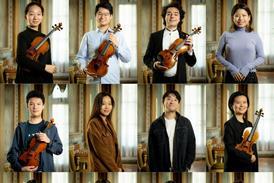
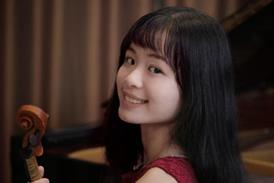
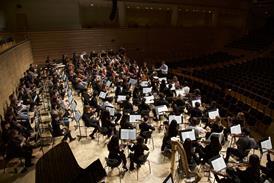
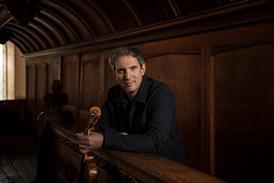
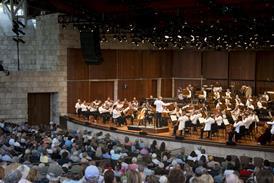
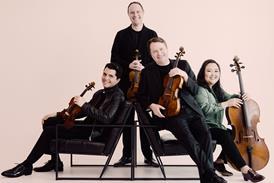



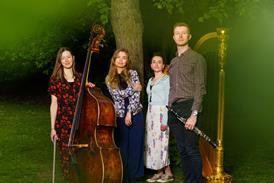
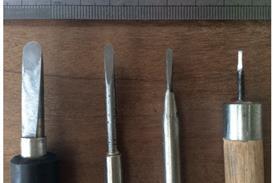
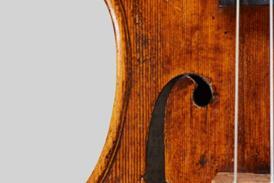
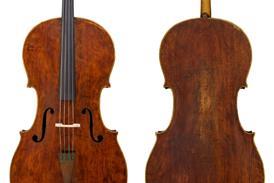
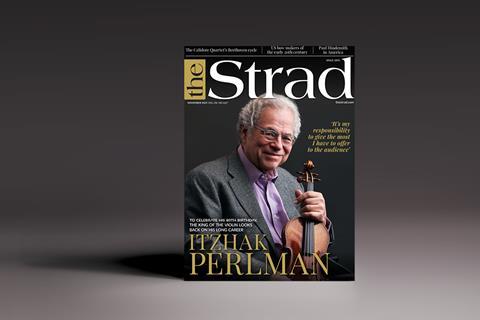




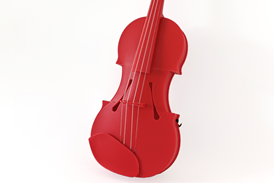
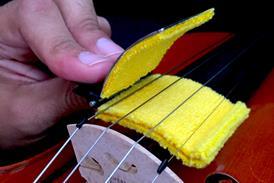
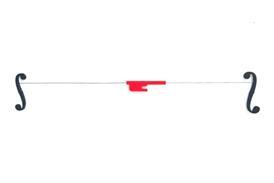



















No comments yet